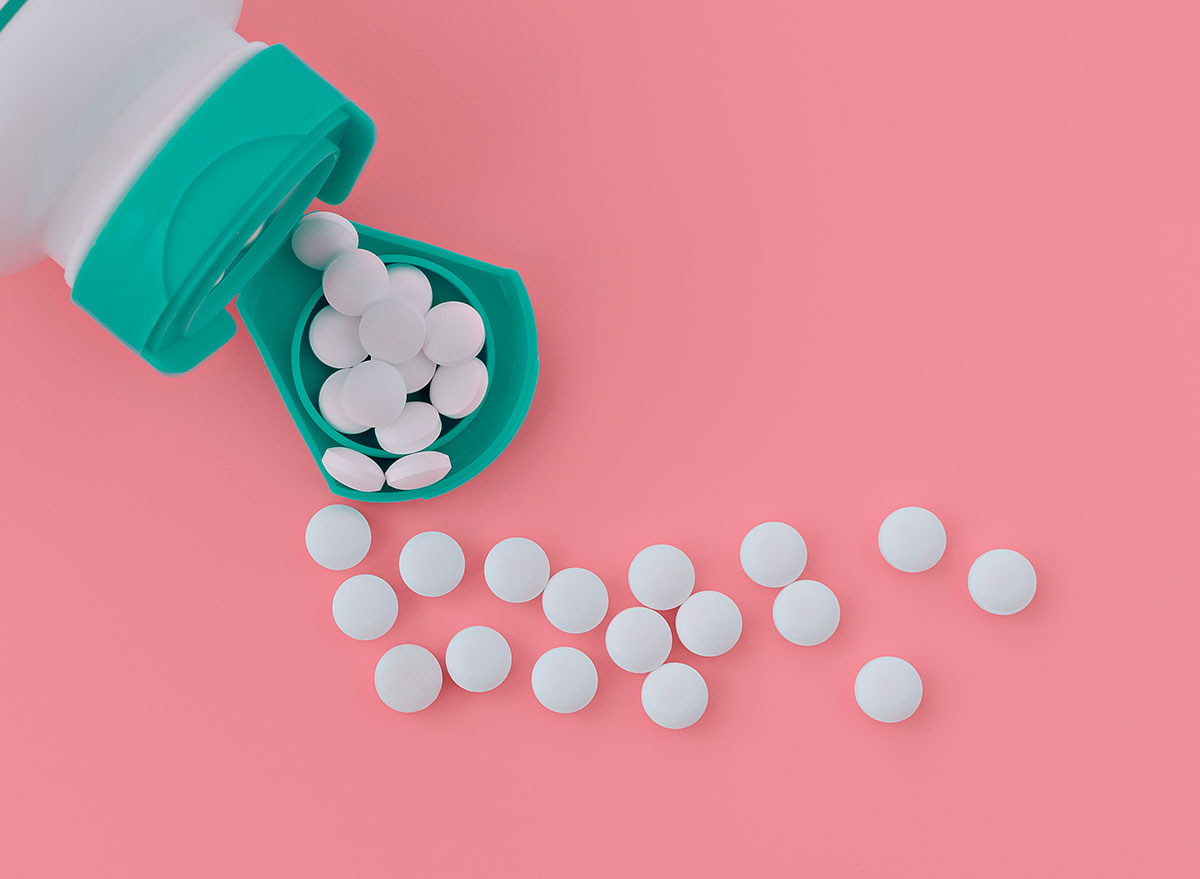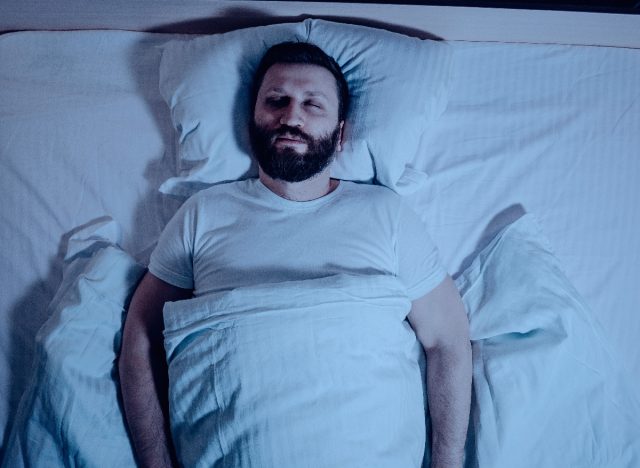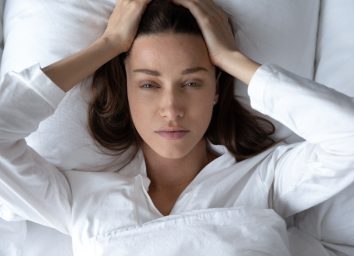Melatonin Might Not Be As Safe As You Think, New Study Shows

As the coronavirus pandemic looms, many Americans are faced with more stressors that make it harder for them to get a good night's sleep.
But now, a new study has prompted a warning that taking too much of the popular sleep aid melatonin may not be safe in the long term. Keep reading to learn more about the study, and then check out the findings from another fascinating recent study about The #1 Best Juice to Drink Every Day.
The study, which was published February 1 in the Journal of American Medical Association, shows that in 2018, Americans were taking more than twice the amount of the over-the-counter sleep aid than a decade earlier. A growing number of adults have been taking doses of melatonin far above the 5-milligram-per-day dosage typically used as a short-term treatment.
"These estimates may raise safety concerns, especially given that the actual content of melatonin in marketed supplements may be up to 478% higher than the labeled content," the study states. "The growing use of melatonin in the general population and its expanding therapeutic potential provide [an] impetus for the acquisition of robust evidence of long-term safety."
We spoke with Dr. Mike Bohl, MD, a member of the Eat This, Not That! medical review board, to see what his thoughts are on the research. He says that it isn't surprising that Americans are taking way more than the recommended dose of the sleep aid.

"Researchers looked for those taking over 5 milligrams per day," Bohl says. "But a simple stop by the supplement aisle in a convenience store reveals that a number of brands sell melatonin in pills that contain 10 milligrams each (twice the recommended dose stated in the study)."
While short-term use of melatonin for shift workers, jet lag, and people who have trouble falling asleep appears to be safe, the long-term safety of using the sleep aid is unknown. "The lack of long-term studies means we don't know if it's safe for extended use," notes the National Center for Complementary and Integrative Health.
"The key with any sleep aid is to not become too dependent on it," Bohl advises. "Luckily, among the available sleep aids, melatonin use is not likely to lead to dependence, and the risk of side effects—like feeling a 'hangover' in the morning—is decreased. However, some side effects, like headache, are still possible."
Even though the Food and Drug Administration regulates dietary supplements such as melatonin, the regulations for it are less strict than those for prescription or over-the-counter drugs. This means that it's incredibly important to consult with your doctor before starting any type of supplement treatment because some may interact with medicines or pose risks if you have medical issues.
For more on advice on sleeping better, check out these Tips to Prevent You From Waking Up At Night.









